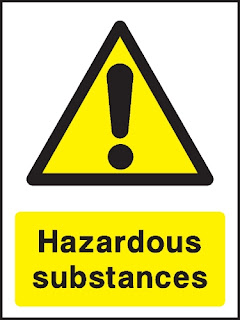Entitled REGULATION (EU) 2016/429 OF THE EUROPEAN PARLIAMENT AND OF THE COUNCIL, this 208 page pdf contains over 300 Directives or 'Articles' concerning animal diseases, animal welfare and, with relevance to the UK, imports from third countries into the EU.
It comes into force on 21st April 2021.
Article 9 (Annex IV on p. 177) is particularly relevant, as are Articles 229 / 300 which end with this gem:
"The Commission shall be empowered to adopt delegated acts in accordance with Article 264 concerning derogations from paragraph 2 of this Article, limiting the possibility for Member States to decide from which third countries and territories a specific species and category of animal, germinal product or product of animal origin may enter the Union, where necessary due to the risk posed by that specific species and category of animal, germinal product or product of animal origin."That sounds suspiciously like a European Beef Ban to us. And we've been there before, have we not?
And the European Union is not without form on the thorny question of zTB . In 2004 when Russia - [link] was sabre rattling about quality of imports, zTB was used as a stick to beat three EU states. These were listed as Spain, the Republic of Ireland and the UK. To offset that threat, the EU drew up an export note, which, like the Beef Ban was a cascade of products ranging from milk powder, through gelatin to hides for tanning. In fact anything and everything - [link] that can be produced from a bovine animal. There is more clarification. [link] on the this as answers to our questions were dragged from the Department of Trade.
And our apologies for the broken links in the first piece on Russia. As readers probably know, the Defra website is pretty rubbish at the best of times, and articles / notes and information are archived very quickly. In this case, the export document. But it exists. It is in someone's drawer and with herd TB incidence now over 10 per cent in the UK, for sure it will be used.
But if no one else is on the case, the FUW (Farmers Union of Wales) are up to speed. Yesterday's lead article on the Welsh lobby group's website, giving details of Tb in Wales - [link] and well written by FUW's policy director, Dr. Nick Fenwick gives a potted history of TB non policy by successive political leaders. It then points out the risks to exports from the current levels of TB in herds. Dr. Fenwick concludes:
The situation would be bad enough under normal circumstances, but with Brexit looming, competitors in other countries have one eye on our TB status, and how it might be used to their benefit – and our detriment – in trade negotiations. The clock is ticking.And that point is made today by our sister site, with emphasis on exports of agricultural products and including several paragraphs from those new EU Regulations - [link] to which we refer above.
Nick Fenwick is quite correct - for eradication of zTB and the security of our exports, the clock is ticking.





